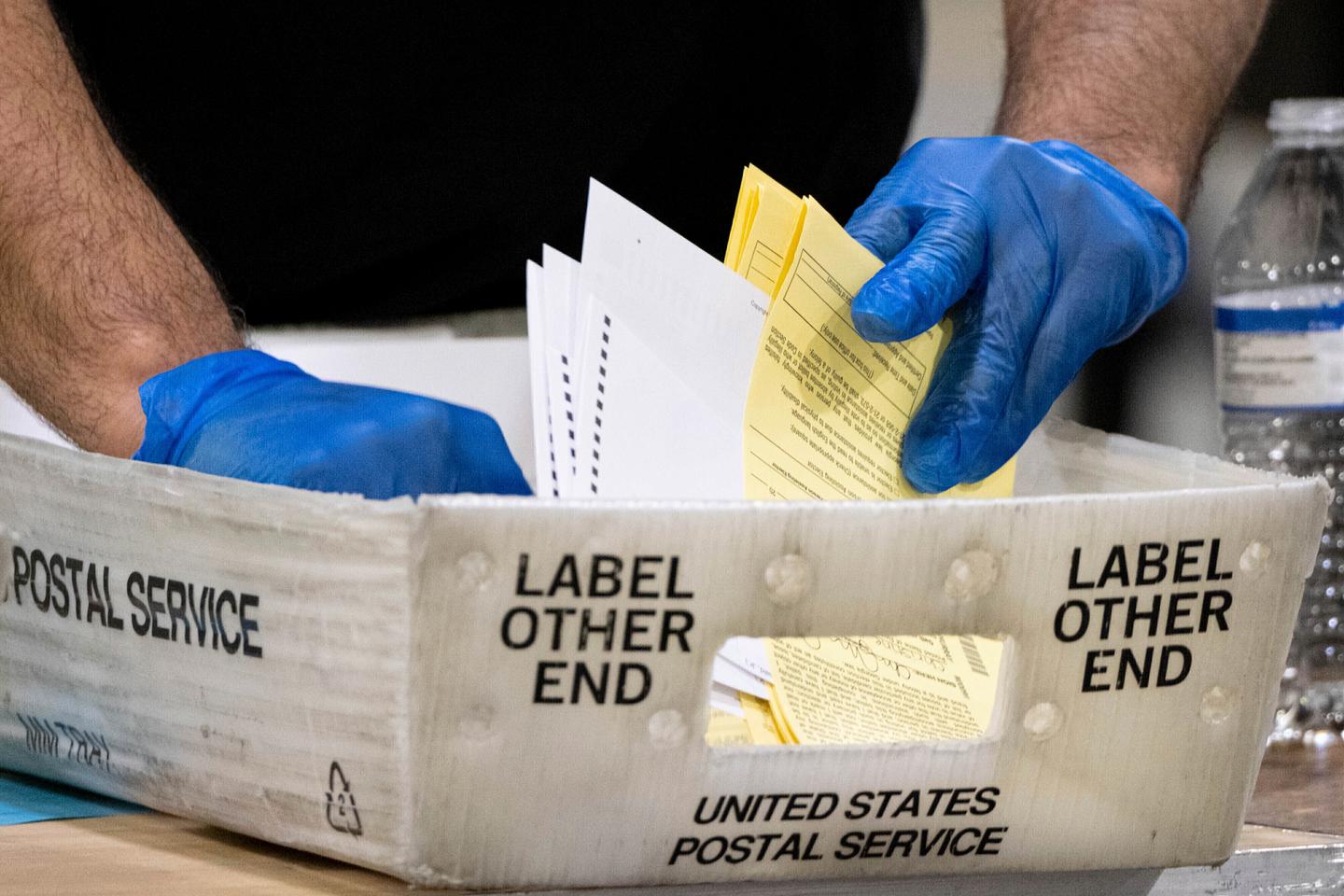


Georgia's Republican-leaning electoral board approved a controversial rule Friday, September 20, requiring counties in the southern US state to hand count all election ballots, sparking fears of delays and chaos in the November presidential vote.
The measure, passed with 45 days to go before the critical showdown between Vice President Kamala Harris and former president Donald Trump, received three votes in favor and two opposed. It will impose a requirement of manual counting of ballots, in addition to machine counting, in a closely-watched swing state with more than seven million voters.
The text says the rule will "ensure the secure, transparent, and accurate counting of ballots by requiring a systematic process where ballots are independently hand-counted by three sworn poll officers." Critics and legal experts warn it will generate delays and confusion, and opponents of the ruling are expected to file an appeal.
The decision is the latest move by the Georgia board's pro-Trump majority, which has made several changes to electoral rules in the weeks leading up to a November 5 election widely seen as going down to the wire.
The 78-year-old Republican flagbearer continues to make unfounded claims that he was robbed of victory in the 2020 election won by Joe Biden, in particular in Georgia. State authorities have indicted Trump, already convicted on felony charges in an unrelated case of falsifying business records, for allegedly seeking to reverse the outcome of the 2020 election.
Goal 'to sow chaos' in the election process
Georgia State Election Board chairman John Fervier questioned the need for a hand count, saying moments before the vote: "I want to make on the record that we'll be going against the advice of our legal counsel by voting in the affirmative." "The overwhelming number of election officials who have reached out to me have been opposed to this," Fervier added.
Saira Draper, a Democratic member of Georgia's House of Representatives, said the goal of the new ruling was "to sow chaos" in the election process. "We are setting up our counties to fail," she told the board. "They are telling you they cannot implement these rules with the time we have left and with the funds they do not have." One key argument is that a manual recount of millions of ballots after a long election day will cause human errors that will delay or taint the process.
The board has already passed a rule in August that allows local election officials to demand "reasonable inquiries" if they have doubts about the process, another measure critics warn could delay election results.
Biden narrowly won Georgia's 2020 presidential election. Two recounts did not change the state result, and a lawsuit alleging widespread voter fraud was dismissed by a federal judge.
Database error
The Arizona Supreme Court ruled Friday that nearly 98,000 people whose citizenship documents hadn't been confirmed can vote in state and local races. The court's decision comes after officials uncovered a database error that for two decades mistakenly designated the voters as having access to the full ballot.
Secretary of State Adrian Fontes, a Democrat, and Stephen Richer, the Republican Maricopa County recorder, had disagreed on what status the voters should hold. Richer asked the high court to weigh in.
The swing state is unique in that it distinguishes between voters who can participate only in federal elections and those who can vote in federal, state and local elections. Eligibility for the latter classification requires submission of proof of citizenship.
The court ruled that county officials lack the authority to change their statuses because those voters registered long ago and had attested under the penalty of law that they are citizens. "We are unwilling on these facts to disenfranchise voters en masse from participating in state contests," Chief Justice Ann Scott Timmer stated in the ruling. "Doing so is not authorized by state law and would violate principles of due process."
